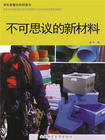1
WITH regards to justice and injustice we must (1) consider what kind of actions they are concerned with, (2) what sort of mean justice is, and (3) between what extremes the just act is intermediate. Our investigation shall follow the same course as the preceding discussions.
We see that all men mean by justice that kind of state of character which makes people disposed to do what is just and makes them act justly and wish for what is just; and similarly by injustice that state which makes them act unjustly and wish for what is unjust. Let us too, then, lay this down as a general basis. For the same is not true of the sciences and the faculties as of states of character. A faculty or a science which is one and the same is held to relate to contrary objects, but a state of character which is one of two contraries does not produce the contrary results; e.g. as a result of health we do not do what is the opposite of healthy, but only what is healthy; for we say a man walks healthily, when he walks as a healthy man would.
Now often one contrary state is recognized from its contrary, and often states are recognized from the subjects that exhibit them; for (A) if good condition is known, bad condition also becomes known, and (B) good condition is known from the things that are in good condition, and they from it. If good condition is firmness of flesh, it is necessary both that bad condition should be flabbiness of flesh and that the wholesome should be that which causes firmness in flesh. And it follows for the most part that if one contrary is ambiguous the other also will be ambiguous; e.g. if 'just' is so, that 'unjust' will be so too.
Now 'justice' and 'injustice' seem to be ambiguous, but because their different meanings approach near to one another the ambiguity escapes notice and is not obvious as it is, comparatively, when the meanings are far apart, e.g. (for here the difference in outward form is great) as the ambiguity in the use of kleis for the collar-bone of an animal and for that with which we lock a door. Let us take as a starting-point, then, the various meanings of 'an unjust man'. Both the lawless man and the grasping and unfair man are thought to be unjust, so that evidently both the law-abiding and the fair man will be just. The just, then, is the lawful and the fair, the unjust the unlawful and the unfair.
Since the unjust man is grasping, he must be concerned with goods-not all goods, but those with which prosperity and adversity have to do, which taken absolutely are always good, but for a particular person are not always good. Now men pray for and pursue these things; but they should not, but should pray that the things that are good absolutely may also be good for them, and should choose the things that are good for them. The unjust man does not always choose the greater, but also the less-in the case of things bad absolutely; but because the lesser evil is itself thought to be in a sense good, and graspingness is directed at the good, therefore he is thought to be grasping. And he is unfair; for this contains and is common to both.
Since the lawless man was seen to be unjust and the law-abiding man just, evidently all lawful acts are in a sense just acts; for the acts laid down by the legislative art are lawful, and each of these, we say, is just. Now the laws in their enactments on all subjects aim at the common advantage either of all or of the best or of those who hold power, or something of the sort; so that in one sense we call those acts just that tend to produce and preserve happiness and its components for the political society. And the law bids us do both the acts of a brave man (e.g. not to desert our post nor take to flight nor throw away our arms), and those of a temperate man (e.g. not to commit *****ery nor to gratify one's lust), and those of a good-tempered man (e.g. not to strike another nor to speak evil), and similarly with regard to the other virtues and forms of wickedness, commanding some acts and forbidding others; and the rightly-framed law does this rightly, and the hastily conceived one less well. This form of justice, then, is complete virtue, but not absolutely, but in relation to our neighbour. And therefore justice is often thought to be the greatest of virtues, and 'neither evening nor morning star' is so wonderful; and proverbially 'in justice is every virtue comprehended'. And it is complete virtue in its fullest sense, because it is the actual exercise of complete virtue. It is complete because he who possesses it can exercise his virtue not only in himself but towards his neighbour also; for many men can exercise virtue in their own affairs, but not in their relations to their neighbour. This is why the saying of Bias is thought to be true, that 'rule will show the man'; for a ruler is necessarily in relation to other men and a member of a society. For this same reason justice, alone of the virtues, is thought to be 'another's good', because it is related to our neighbour; for it does what is advantageous to another, either a ruler or a copartner. Now the worst man is he who exercises his wickedness both towards himself and towards his friends, and the best man is not he who exercises his virtue towards himself but he who exercises it towards another;for this is a difficult task. Justice in this sense, then, is not part of virtue but virtue entire, nor is the contrary injustice a part of vice but vice entire. What the difference is between virtue and justice in this sense is plain from what we have said; they are the same but their essence is not the same; what, as a relation to one's neighbour, is justice is, as a certain kind of state without qualification, virtue.
2
But at all events what we are investigating is the justice which is a part of virtue; for there is a justice of this kind, as we maintain. Similarly it is with injustice in the particular sense that we are concerned.















